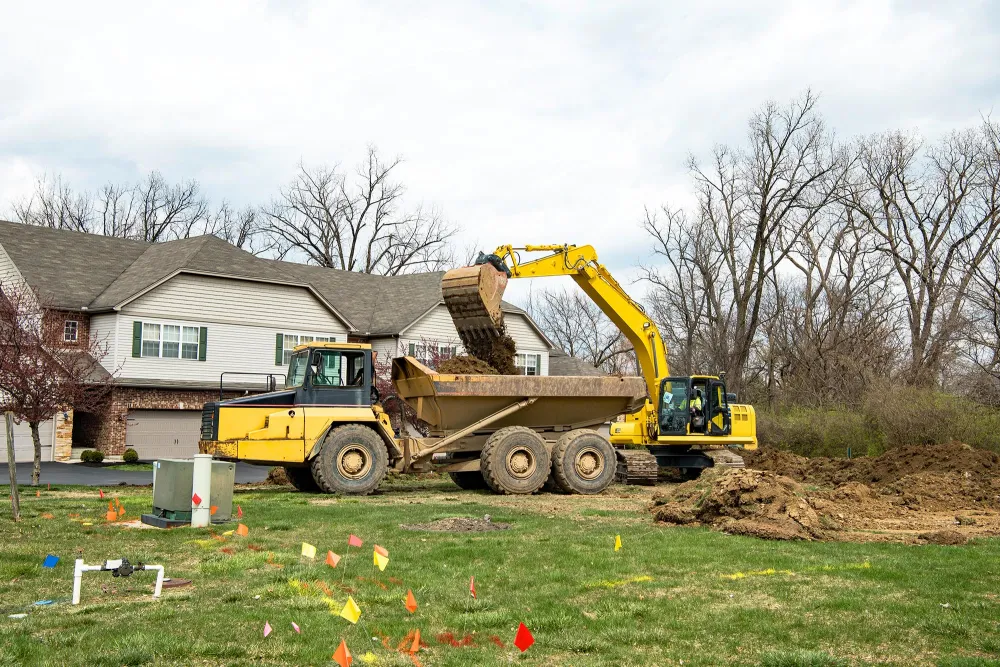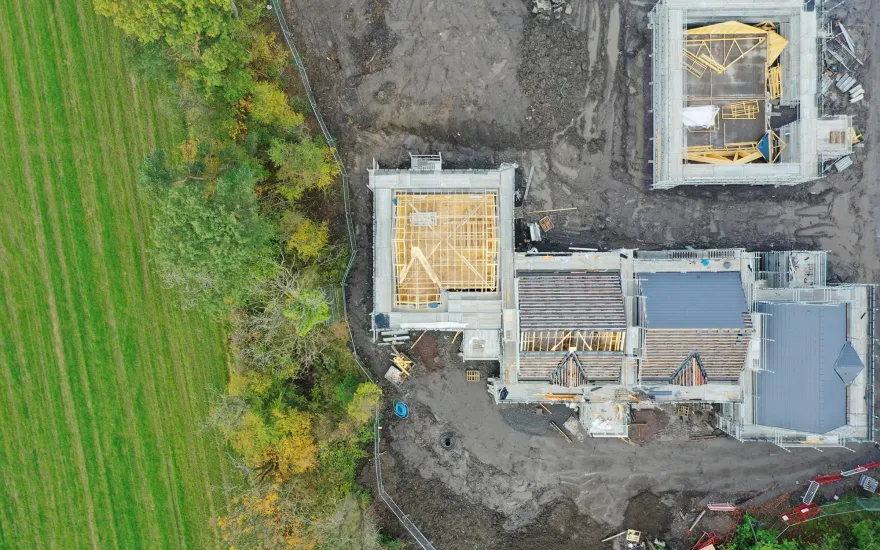Now live: The 2025 Canopy Report. Learn how Americans see trees. GET THE REPORT
Bulletin
Save Your Trees from Subtle Death
Trees deserve respect and special care during construction projects of all kinds around homes, businesses, and on institutional property such as college campuses or government buildings.

Landscape trees are a beloved part of most homes, institutions, and even some businesses.
No one would intentionally inflict harm on these beautiful and beneficial attributes to the property. But harm comes in many forms, especially if trees are forgotten when building or landscaping projects come along.
Many years ago, we asked arborists and urban foresters in locations throughout the country to tell us what they found results in the most premature deaths of urban trees. Almost unanimously, the finger of infamy pointed to construction damage. This probably has not changed over the years, and the sad part is that it is preventable.
The challenge of saving trees during construction can be divided into two categories. One is large-scale construction. For example, when a new housing development is slated, the land is often stripped of its vegetation (and even its top soil), and the site is cleared for work to begin on utilities, streets, and buildings. Some say, tongue-in-cheek, this is the nuclear option. There are better ways.
The other category is what happens around individual residences, on campuses, or next to businesses. It may be a new house planned on a single lot or, more often, an improvement project of some kind where trees have long been part of the landscape. In most cases, the damage to trees is as subtle as it is unintentional, and tree health declines slowly. But there are ways to conduct improvement work while at the same time keeping trees safe and healthy.
In This Bulletin
Here’s what’s inside:
- Planning First Can Prevent Problems Later – the four steps of planning with trees in mind
- Saving Trees – Tips for Above-Ground Work – methods to effectively prevent tree damage
- Saving Trees Means Protecting Roots – methods that protect the essential space below the surface
- Vulnerability to Construction Impacts – considering how adaptable a tree will be to long-term impacts
